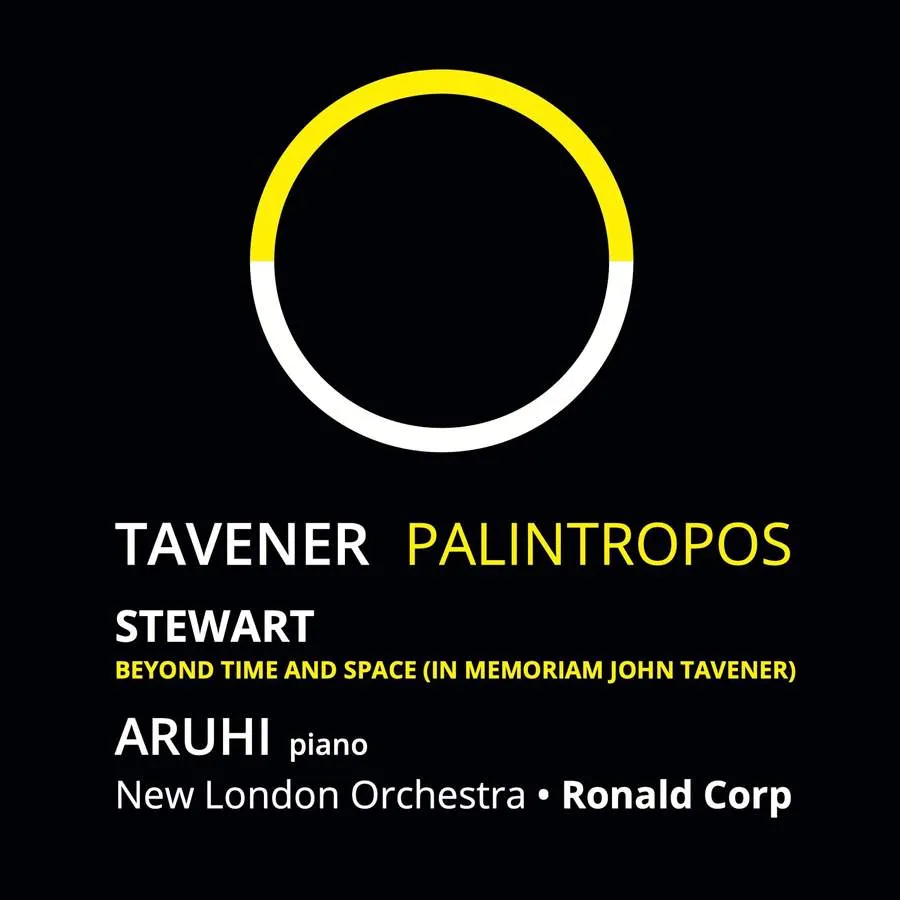
Michael Stewart • Tavener Tavener: Palintropos; Michael Stewart: Beyond Space and Time Aruhi (piano); New London Orchestra/Ronald Corp A Flock Ascending AFACD 001 46:01 mins
This is unusual Tavener. Dating from 1978, Palintropos belongs to the transitional period in Tavener’s life where he moved from being a restless western-European progressive to focusing exclusively on the spiritual. The timelessness of Tavener’s mature works is already present, but it is combined and overlaid with busy modernist gestures. A voluble and demanding solo piano chitters busily, yet this is hardly a concerto. To complicate matters further, as Tavener himself observed, it is an unusually impressionistic work in his output. Similar to a palindrome, the title refers to a structure turning back on itself. In this case, it specifically charts the changing light on the sea from dawn to dusk viewed from high up on the island of Patmos. Unsurprisingly, the spirit of Messiaen is rarely far away, especially in the slow moving brass figures. Nonetheless, Palintropos is far from derivative, with numerous ear-catching aspects, such as the quixotic duets between piano and celeste, or the dynamically static central climax.
That this curious mix hangs together as a convincing entity is a tribute to Tavener’s compositional skills, aided here in this remarkably assured first recorded performance from Japanese pianist Aruhi and the New London Orchestra under Ronald Corp. It is partnered by Michael Stewart’s Beyond Time and Space (in Memoriam John Tavener) in which piano is again to the fore. Nonetheless, Stewart’s swooshing, phasing keyboards and electronics often dominate the texture in a triptych that aspires to the eternal, though ultimately less memorably than the Tavener.
Christopher Dingle